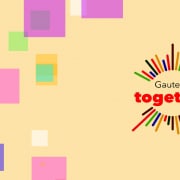|
Getting your Trinity Audio player ready...
|
Today marks the launch of Gauteng Together, an initiative calling for the establishment of community action networks (CAN) across Gauteng to address the social impact of the Covid-19 pandemic.
The project was initiated by The Angel Network, the Ahmed Kathrada Foundation and CONECKT, and is supported by a range of organisations, individuals and local community volunteers.
The initiative, which was pioneered by Cape Town Together, is being adopted in Gauteng in response to growing concerns over food insecurity, hunger and other social challenges impacting negatively on the lives of people due to the lockdown.
Diricilla Naidoo, serving on the Gauteng Together team, said that the “initiative not only taps into the goodwill of ordinary people during this period, but importantly, develops activism at a grassroots level for neighbourhoods to work together in addressing these challenges”.
“There are already 20 CANs that are being launched this week in Gauteng, and we expect this number to grow in the coming days,” she added.
Gauteng Together will mobilise ordinary people to initiate Community Action Networks (CAN) in their neighbourhoods; to identify community needs, and to work towards addressing them through co-ordinated, localised action. CANs can be constituted by several volunteers from a locality, a civic structure, a religious institute or any other community-based organisation. Local organisations already doing relief work can also register as a CAN.
Gauteng Together starter pack | info pack
According to Nhlanhla Lucky Nkosi from Gauteng Together, the network acknowledges that there are religious and charitable institutions already doing phenomenal aid work on the ground. CANs are not meant to replace them or duplicate the work.
Nkosi emphasised that the project will map out what aid and humanitarian work is happening in the province, both through CANs and existing NGOs, and point out where there are gaps.
Neeshan Balton, a committee member of Gauteng Together, explained that this initiative follows a statement issued last week by a range of highly influential individuals led by former President Kgalema Motlanthe calling on South Africans to mobilise to ensure food security.
“The CAN model gives practical impetus to that call. It may not have capacity to meet everyone’s needs as it kicks-off but will go a long way in ensuring sustained community efforts to mitigate the food crisis,” said Balton.
This highly localised model has the potential to ensure that CANs identify those most in need within their communities and raise the necessary resources to address those needs.
Balton said that CANs are not funded by Gauteng Together. This should be done through partnering with local businesses or pairing up with better resourced CANs, philanthropists, existing NGOs and residents in neighbourhoods.
Speaking about the work CANs could do, Naidoo said, “It will differ from community to community depending on the needs. For many, food security may be the primary issue. However, individual CANs should look beyond packaging food hampers. It’s also about ensuring that those who are self-isolating have groceries bought on their behalf, or in communities where there are communal taps, that water is taken to households under quarantine – and all of this done within stringent safety regulations.”
Naidoo emphasised that gender-based violence and the abuse of children should also be given serious attention during the lockdown; that food price inflation and rights abuses are monitored, and that anything that could put the community at increased risk of spreading the coronavirus is identified and addressed.
The Gauteng Together initiative will create a province-wide network of CANs able to work together and share learning experiences, resources and best practice methodology to address social and economic needs in communities.
The model has its origins in Cape Town and is being replicated in the Eastern Cape and now Gauteng. It can be adopted by other provinces and become a nationwide model for civic activism during this period.
Balton said that “at its core, the CAN initiative is about developing a heightened sense of social solidarity during a very difficult time, not only here in South Africa, but globally as well.”
Follow these steps to start a CAN:
- Identify a core set of volunteers in your community or your organisation.
- Designate one volunteer to be the administrator, who will be a point of contact for the CAN with the Gauteng Together committee.
- If you are an individual volunteer, without any co-volunteers, you can follow the same instructions outlined below. You can choose whether you want to be an administrator and begin the formation of a CAN, or just volunteer and be put in touch with an existing CAN.
- All volunteers identified, including the administrator, must log onto www.gautengtogether.org and click ‘get started’ to fill in the ‘sign up’ form .
- Every volunteer will be asked whether they want to start a CAN – the administrator of the CAN should say ‘yes’ and the rest of the volunteers should say ‘no’.
- Wait for a response. The administrator will be contacted via e-mail with information about whether a CAN already exists within their locality and who to get in touch with if this is the case. If no CAN has already been established in the area, the administrator will be emailed with a ‘starter pack’ outlining the next steps for registering the CAN.
- All other volunteers will be allocated to CANs in their area and be contacted with further details.
For more information, visit the Gauteng Together Facebook page.
Here is the list of organisations endorsing the Gauteng Together initiative:
- Ahmed Kathrada Foundation
- Africa Muslims Agency
- Anglican Church of Southern Africa
- Ashraful Aid
- Auwal Socio-Economic Research Institute
- Beit Emanuel Progressive Synagogue
- Business Leadership South Africa
- Cholo Foundation
- CONECKT
- Congress of Business and Economics
- Consortium for Refugees and Migrants in South Africa
- Cooperative and Policy Alternative Centre
- Corruption Watch
- Dimphonyana Tsa Lapeng
- Freedom Charter Foundation
- Freedom Under Law
- Gauteng Food Security Committee
- Jamiatul Ulama South Africa
- Johannesburg Against Injustice
- Ladies of Hope
- Lawyers for Human Rights
- Mediate Works
- Methodist Church of Southern Africa
- New Nation Movement
- Nkosi’s Haven
- Patriotic Movement
- Salaam Foundation
- SA Muslims Covid19 Response Team
- Soul Food
- South African Food Sovereignty Campaign
- South African Hindu Maha Sabha
- South African Jewish Board of Deputies
- South African National Muslim Women’s Forum
- South African Tamil Federation
- Tamil Business Warriors
- Tamil Federation of Gauteng
- The Angel Network
- Tsholofelo Foundation
- Via Christi Community Church
- Zimbabwe Community in South Africa
Issued by Gauteng Together
Media enquiries:
Delani Majola – 078 5474 981
Moira Campbell – 083 995 4711 – moirac@corruptionwatch.org.za
Rebecca Mogalagadi – 083 721 7492 – media@kathradafoundation.org








